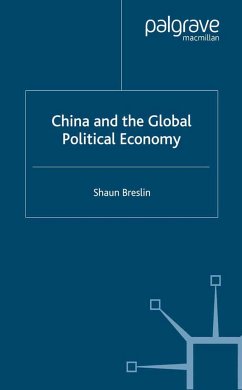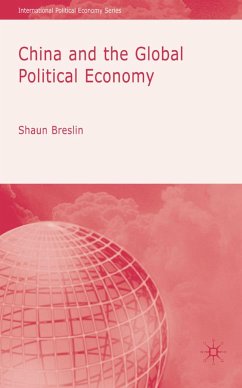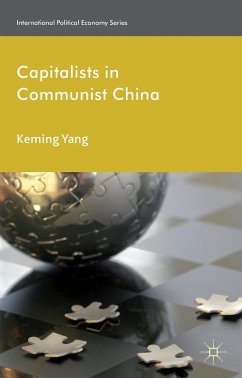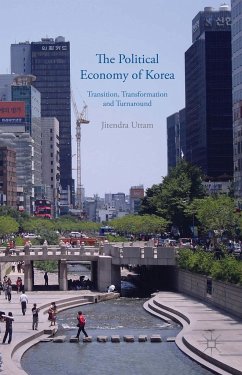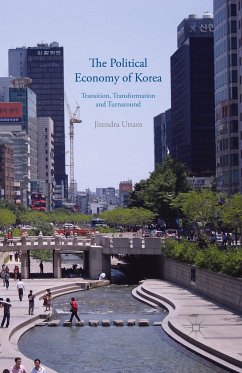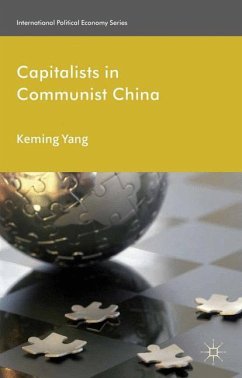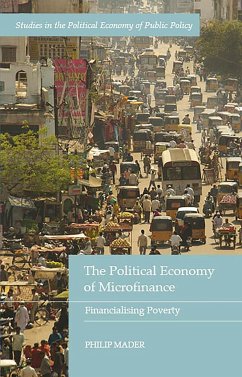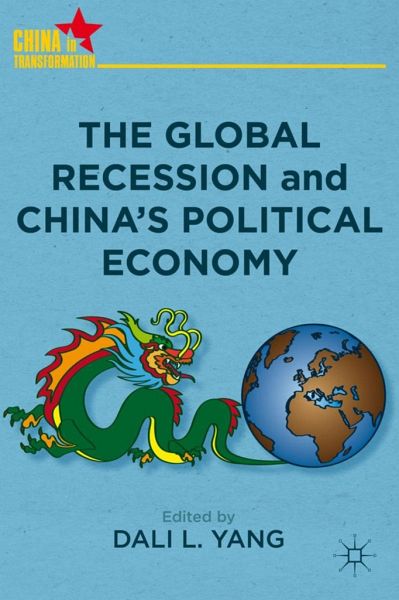
Gebundenes Buch
The Global Recession and China's Political Economy
Versandkostenfrei!
Versandfertig in 6-10 Tagen

PAYBACK Punkte
19 °P sammeln!





In this volume, some of the leading scholars on China's development examine China's responses to the global financial crisis and their implications for China's economy, society, and the international balances of power.
DALI L. YANG Professor in the Department of Political Science at the University of Chicago, USA. He is the author of Remaking the Chinese Leviathan: Market Transition and The Politics of Governance in China (2004); Calamity and Reform in China: State, Rural Society, and Institutional Change Since the Great Leap Famine (1996) and Beyond Beijing : Liberalization and the Regions in China(1997). He is also editor or co-editor of several other volumes and the author of many articles, including The United States and the Rise of China and India by the Chicago Council on Global Affairs. Yang is the founding faculty director of the University of Chicago Center in Beijing, China, and of the University of Chicago Confucius Institute. He was previously chairman of the Political Science Department, director of the Center for East Asian Studies, and director of the Committee on International Relations, all at the University of Chicago. He is a current member of the Committee of 100, the National Committee on U.S.-China Relations, and the China Committee of the City of Chicago Sister Cities Committee. He received his PhD from Princeton.
Produktdetails
- China in Transformation
- Verlag: Macmillan Education / Palgrave Macmillan US / Springer Palgrave Macmillan
- Artikelnr. des Verlages: 978-0-230-34085-5
- 2012 edition
- Seitenzahl: 267
- Erscheinungstermin: 24. April 2012
- Englisch
- Abmessung: 218mm x 145mm x 20mm
- Gewicht: 475g
- ISBN-13: 9780230340855
- ISBN-10: 0230340857
- Artikelnr.: 34225306
Herstellerkennzeichnung
Libri GmbH
Europaallee 1
36244 Bad Hersfeld
gpsr@libri.de
'This book is by far the best treatment of trends within the Chinese political economy since 2008. Looking through many functional lenses (business, politics, law, trade, administration, and others), it documents a trend of 'the state advancing and private people retreating' (guojin mintui) that has reversed an opposite trend during earlier eras of reform in China. Most readers in the West do not yet know what a sharp change this has been. This is the book that will tell them.'
Lynn White, professor of Politics and International Affairs, Woodrow Wilson School of Public and International Affairs, Princeton University
Lynn White, professor of Politics and International Affairs, Woodrow Wilson School of Public and International Affairs, Princeton University
Für dieses Produkt wurde noch keine Bewertung abgegeben. Wir würden uns sehr freuen, wenn du die erste Bewertung schreibst!
Eine Bewertung schreiben
Eine Bewertung schreiben
Andere Kunden interessierten sich für





